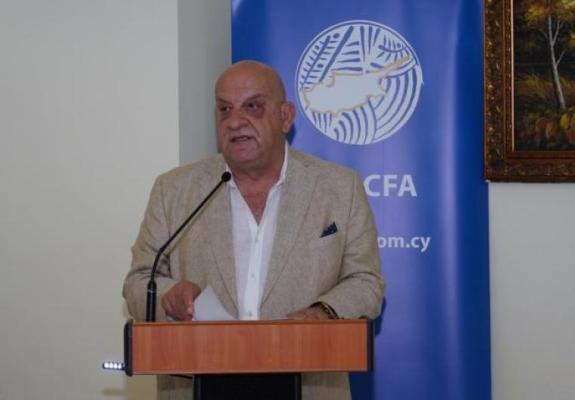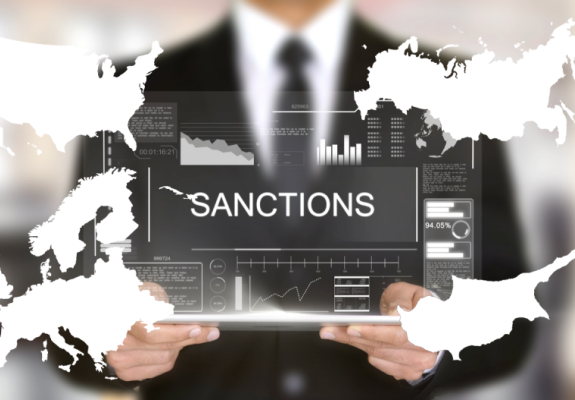How Many Fiascos Until Actual Reform?
The Restructuring of the Inadequate Public Contracts Framework Should Prioritize the National Economy, Not Special Interests
With the Larnaca marina and port contract officially declared dead and the LNG terminal station at Vasilikos on life support, the framework for assigning, overseeing, and operating public contracts is once again under scrutiny.
This time, however, the issue needs to be addressed seriously and responsibly, avoiding the usual empty promises that fail to lead to reforms. After numerous cases, it has become evident that state officials favor grandiose announcements that collapse like a house of cards. Therefore, it is wise to maintain realistic expectations to avoid major disappointments.
This pattern was not only evident in the Larnaca marina and port case or the LNG terminal at Vasilikos but also in other instances like the e-justice platform, which was supposed to revolutionize the legal world by ushering it into the digital age.
The platform barely operated for a few days.
This pattern is also seen in older stories, such as nearly the entire decade-long energy policy of Cyprus, with natural gas, LNG, and electricity interconnections remaining largely in the realm of fantasy.
There is no doubt that all of these issues are multifaceted. However, we must also focus on the common patterns of their failures.
Projects that are heavily advertised but collapse and are not delivered are called fiascos in Greek and other languages worldwide. Fiascos not only tie up economic and human resources but also lead to significant delays (e.g., the extended timeline for the Larnaca marina and port with all the associated consequences) and nullify entire state strategies toward their goals (e.g., the LNG at Vasilikos could save millions from emissions costs for Cypriot taxpayers and enhance the country's energy role).
Moreover, fiascos lead to another crucial issue: serious investors will think twice before investing in Cyprus and committing long-term to the island's economy. These are the investors every country should strive to attract, as opposed to opportunistic short-term financial grabs that degrade the investment product itself.
Public contracts are indeed a sensitive area, as it involves the distribution of public funds. In Cyprus, as in many other countries, this has often proven to be the fastest way to "corporate success." However, the national economy's interest dictates that the framework for public contracts must be infused with better, more efficient rules and criteria.
Above all, it must operate under the same terms for everyone.
The discussion on restructuring the framework, which has intensified in recent days, highlights two aspects. First, the process of awarding public contracts and second, new, alternative dispute resolution mechanisms in case something goes wrong.
Regarding the first aspect, it is evident that the existing framework focuses solely on the financial aspect of a contract, overlooking other critical parameters, such as whether the contractor can deliver the project on time and, most importantly, if they have the capacity to complete the project at all. The new framework should aim to enrich the selection criteria of a contractor to ensure they align with the new realities of the 21st century concerning project quality and to reflect best practices from other countries in awarding public contracts.
Moreover, the proper weighting of these criteria is essential.
Equally important is the oversight of ongoing projects as an additional institutional safeguard that allows the state to monitor delays in various aspects of a project more effectively or to detect and prevent negative developments in a timely manner.
On the second aspect of the discussion, finding more efficient ways to resolve disputes is obviously beneficial—settlements that do not jeopardize the project's completion or indefinitely prolong its completion.
However, caution is necessary here. Some opinions, such as the suggestion to disallow appeals for the first four, five or six years of a public contract, verge on ‘reverse’ populism and further question the transparency rules that should be followed.
Addressing the inefficiency and slow pace of the justice system should be reformative; this does not mean that justice and supervisory mechanisms should be excluded from the public contracts framework, where strict oversight is not only welcome but imperative.
Additionally, excluding other companies from raising objections in cases of apparent favoritism, whether intentional or not, would perpetuate a destructive mindset for healthy business practices on the island and hinder fair competition.
Indeed, many stakeholders in Cyprus share the belief that things should be done quickly, without much discussion or deliberation.
We have seen where this leads time and time again.
However, there is a significant middle ground between years of bureaucratic delays and fast-track procedures with vague rules, flexible timelines, and insufficient oversight. This middle ground can work much more effectively.
The responsible and serious restructuring of the beleaguered and inadequate public contracts framework should prioritize the national economy, not special interests. A new, transparent, and fair public contracts framework can lead to significant reform, attracting companies capable of undertaking projects and ensuring these projects are delivered within a reasonable timeframe. It will also signal that Cyprus's modus operandi in business, often highlighted negatively in international media, can be reformed.
Lastly, but far less importantly, such a framework will also give the political leadership the opportunity to cut ribbons at ceremonies for projects that are tangible and visible—not just on paper.






